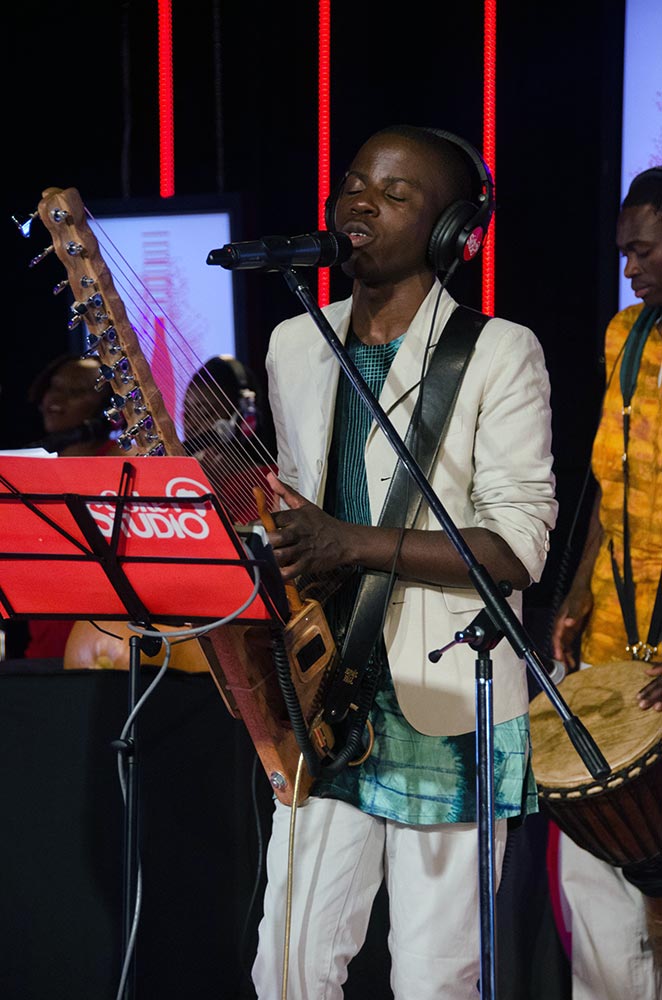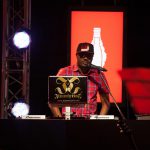Joel Sebunjo is one of the artists from Uganda that was chosen to participate in Season One of the Coke Studio Africa show. This is a unique music show that brings together artists from different genres, eras and regions to create a modern and authentic African sound through musical fusion. Read on to see what he thinks of the show, his time there sofar and his music in general.
How would you describe your music?
My music can be described as African roots with groove. I bring the African sound from its source i.e. the village, and I spice it up to appeal to everyone.
What is the first song you chose for Coke Studio and what is it about?
The first song I chose is Tajabone which is one of the greatest African classics. It was originally done by Ismael Lo from Senegal and it is quite an honor to perform his song as he is one of the artists that has mentored me. Tajabone is a Muslim festival celebrated every year in Senegal. It is very popular and during the festival, children exchange gifts, girls dress like boys and boys dress like girls, people wear masks and it is generally a carnival which lasts until dawn.
How did you find out about the song?
Since I was young, I used to listen to a lot of music from West Africa, especially by Ismael Lo. I had also been travelling to Senegal a lot and made a connection with Senegalese music. That is what made me choose this song.
The second song you chose for Coke Studio was your break through song. Tell us more about it.
The song is called Nakato. The name “Nakato” means the younger one of twin girls in Buganda culture. The song is about a girl called Nakato and is based on the Buganda folklore, from the way the music is arranged, the lyrics and the vocal style. It is my breakthrough song because everywhere I perform it people seem to love it. I am recording it again at the moment for my second album because my music label thinks we should re-do it in a bigger way and try and take it places.
Who are you collaborating with on Coke Studio?
I am collaborating with Miss Karun on the song Miniyamba. This song has been there for thousands of years and talks about a woman who was pregnant. One day she goes into the forest to collect firewood and when she arrives, she starts getting labor pains. She is all alone but with her is a big snake that helps her to deliver. For African people, this song is more than a story, it’s a myth. The song represents the strength and independence of African women and other women around the world.What was it like working with Miss Karun?
She was very interested to work with. Although she is from the hip hop side, she was quite keen on working on a traditional song which was great.
Do you like collaborating with different artists?
Every time you collaborate, you end up having a variety of ideas and the work ends up being done faster because of everyone’s unique contribution which brings about diversity and unity. For example, if a musician from Uganda collaborates with a Kenyan artist, unity and shared ideas are brought about at the same time. However, there is a thin line between success and failure when doing collaborations. It really depends on the artist that you are working with. If you are lucky to find a cooperative partner, the song will be a success as opposed to collaborating with an uncooperative artist where the end result will be disastrous. For me, I give the artist that I want to collaborate with the chance to express what they want in a track and I try and fit in what I want as well.
What does fusion mean to you?
Fusion is becoming a great concept in all art, be it in music, photography, visual arts or even in cuisines. I have been a champion of fusion for about 10 years, and I have been amongst the people who spearheaded the afro fusion concept across Kampala. I am very happy to see that ideas are now coming up in that line especially in mainstream music. Through fusion we are trying to create a style by bringing together West Africa and East Africa. I realized the Kora had become a very important component in African music, so we brought it from West Africa and adapted it into Ugandan music. We are creating a fusion of the beats and sounds between East and West Africa and we call it the “Ganda Mande”.
What other instruments do you play apart from the Kora?
I also play the Endongo which is also known as the Bow Lyre. It happens to be one of the oldest instruments in the Buganda kingdom. It was originally played in the king’s palace (Kabaka) and today its use is dying out because most of the elders have passed on but I carry on this tradition of Endongo music. I also play the Akogo which is a thumb piano, and the Madinda as well as other traditional instruments as my emphasis is on African music.
What do you think of Coke Studio?
When I got a call from the Coke Studio organizers, I was very excited because I could not imagine that out of the thousands of artists, they chose me for this project. I had seen Coke Studio before on YouTube from India and Pakistan so when I got the call, I knew they wanted me to bring African music to the people.
[divider]
Coke Studio, airs in Kenya, Uganda, Tanzania & Nigeria and includes eight 45min shows plus a planned 2 hour New Year’s Eve special. Each episode will showcases an unexpected fusion by various groups of artists to create a unique sound. The show also provides viewers with a behind the scenes look into the artist’s interactions and experiences on set.
In addition to the TV show, fans will be able to watch and download various content such as video, MP3 and wallpapers on the new Coke Studio Africa website. Entire episodes of the show will also be available on the official YouTube channel. Viewers across the continent have the opportunity to win various prizes including autographed posters, Coke Studio kits and branded merchandise through the show.







